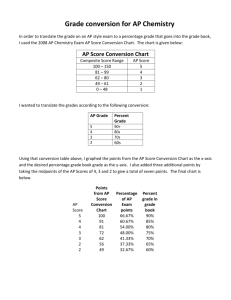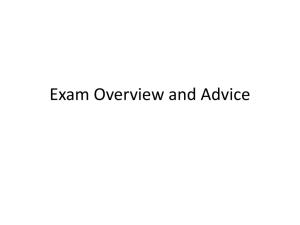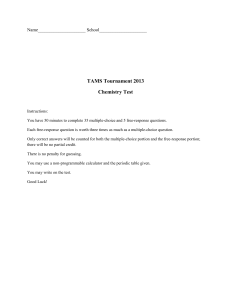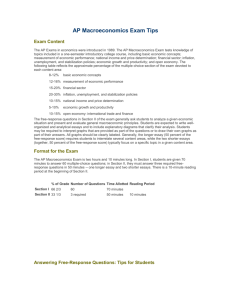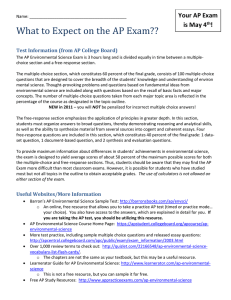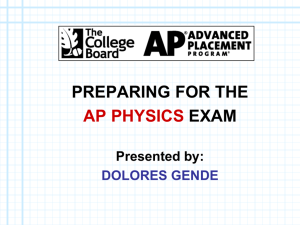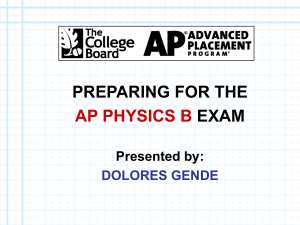Syllabus World History
advertisement
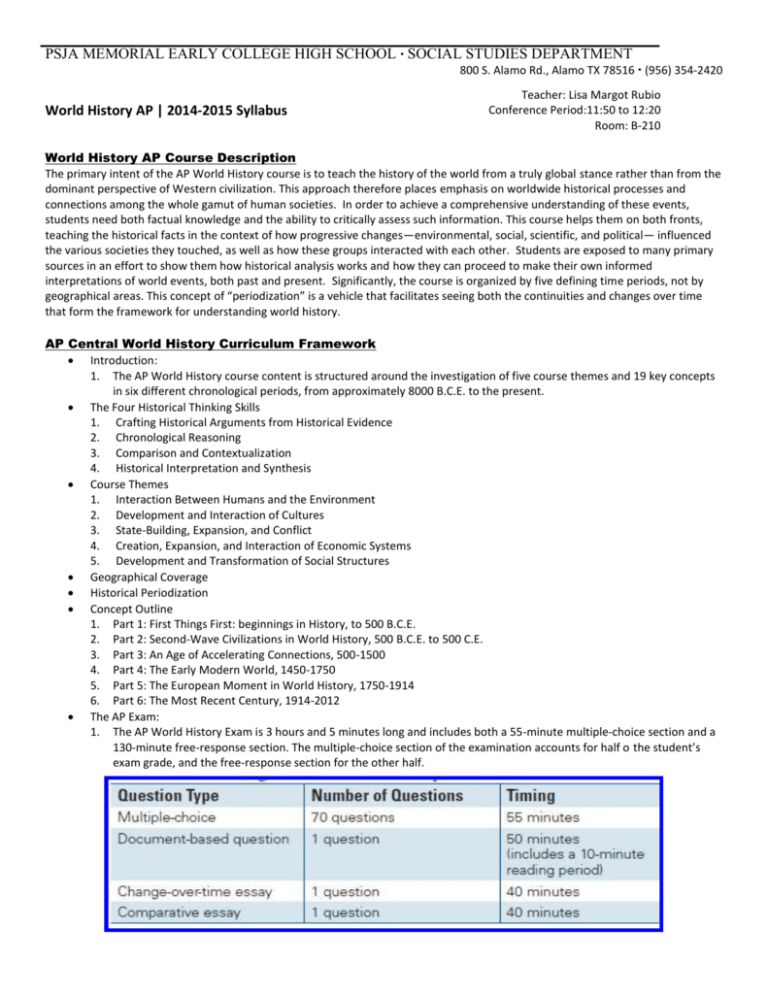
PSJA MEMORIAL EARLY COLLEGE HIGH SCHOOL SOCIAL STUDIES DEPARTMENT 800 S. Alamo Rd., Alamo TX 78516 (956) 354-2420 World History AP | 2014-2015 Syllabus Teacher: Lisa Margot Rubio Conference Period:11:50 to 12:20 Room: B-210 World History AP Course Description The primary intent of the AP World History course is to teach the history of the world from a truly global stance rather than from the dominant perspective of Western civilization. This approach therefore places emphasis on worldwide historical processes and connections among the whole gamut of human societies. In order to achieve a comprehensive understanding of these events, students need both factual knowledge and the ability to critically assess such information. This course helps them on both fronts, teaching the historical facts in the context of how progressive changes—environmental, social, scientific, and political— influenced the various societies they touched, as well as how these groups interacted with each other. Students are exposed to many primary sources in an effort to show them how historical analysis works and how they can proceed to make their own informed interpretations of world events, both past and present. Significantly, the course is organized by five defining time periods, not by geographical areas. This concept of “periodization” is a vehicle that facilitates seeing both the continuities and changes over time that form the framework for understanding world history. AP Central World History Curriculum Framework Introduction: 1. The AP World History course content is structured around the investigation of five course themes and 19 key concepts in six different chronological periods, from approximately 8000 B.C.E. to the present. The Four Historical Thinking Skills 1. Crafting Historical Arguments from Historical Evidence 2. Chronological Reasoning 3. Comparison and Contextualization 4. Historical Interpretation and Synthesis Course Themes 1. Interaction Between Humans and the Environment 2. Development and Interaction of Cultures 3. State-Building, Expansion, and Conflict 4. Creation, Expansion, and Interaction of Economic Systems 5. Development and Transformation of Social Structures Geographical Coverage Historical Periodization Concept Outline 1. Part 1: First Things First: beginnings in History, to 500 B.C.E. 2. Part 2: Second-Wave Civilizations in World History, 500 B.C.E. to 500 C.E. 3. Part 3: An Age of Accelerating Connections, 500-1500 4. Part 4: The Early Modern World, 1450-1750 5. Part 5: The European Moment in World History, 1750-1914 6. Part 6: The Most Recent Century, 1914-2012 The AP Exam: 1. The AP World History Exam is 3 hours and 5 minutes long and includes both a 55-minute multiple-choice section and a 130-minute free-response section. The multiple-choice section of the examination accounts for half o the student’s exam grade, and the free-response section for the other half. TEXTBOOKS: Mastering the TEKS in World History, by Killoran, J., Zimmer, S., Jarrett, M. (Jarrett Book) The Ways of the World: A Global History Second Edition, Robert W. Strayer GRADING POLICY Tests (multiple choice) Classwork /Homework Quizzes Projects Six Weeks Exam 40% 20% 15% 10% 15% LIST OF SUPPLIES 1. 3 ring binder (2 inch minimum) with pockets which will be used only for WHAP. Be advised that the binders will be collected for review by the teacher 2. Glue stick(s)/tape (clear gift wrapping Scotch tape) 3. map pencils 4. pencils/pens 5. paper 6. Dividers/Folders COURSE REQUIREMENTS 1. PREPARE: World History AP Exam will be administered in May 2015. 2. FOLLOW INSTRUCTIONS: This includes those given by administrators, staff, substitute teachers and me. Please ask me for help on something you don’t understand. I won’t do your work for you but we’re in this together—Teacher, Student and Parent. I’ll do my best to be help you anyway I can, but you must PAY ATTENTION. 3. TURN IN YOUR ASSIGNMENTS ON TIME- It is your responsibility to keep up with your work. The highest grade you can make on a late assignment is a “70”. Tutorials are available everyday after school by request. 4. PROMPTNESS. Be in your seat before the bell rings. Pencil/pen, books and notebooks out. I will begin as soon as the bell begin so be HERE ON TIME. 5. ALLOW STUDENTS TO LEARN AND TEACHERS TO TEACH. I’ll treat you with RESPECT and consideration and it’s expected that you will treat peers and adults in a courteous and respectful manner. Treat others as you would like to be treated. 6. COMPLY WITH ALL SCHOOL RULES, REGULATIONS, AND POLICIES. It’s most important that you know the rules if you are expected to follow them. Read your student handbook. Dress code will be strictly enforced. Electronic devices such as MP3 players and cell phones are prohibited. 7. KEEP THE CLASSROOM (and desks) CLEAN. Before leaving class check your area. Pick up paper and return desk to original place unless otherwise instructed. Do not write on desks or anything else that does not belong to you. Put trash in the trash can by the door. 8. TESTS. These are a way to evaluate your progress and understanding of the material. You will have a variety of these evaluations including benchmark tests, poster projects, and research projects. Remember tests are 40 % of your six weeks average so it is very important to attend school daily, complete assignments, and STUDY. 9. GROUPS. We often work in groups. This requires cooperation and that you pull your own weight. If you have not participated in the group activity and allowed others to do all of the work you risk receiving a zero for the activity or for a daily grade 10. PARTICIPATION. Everyone is expected to answer oral questions, ask questions and participate in class and group discussions. Participation is graded. The learning environment is positive and as a class we will make it possible for all to participate comfortably. Rude, unpleasant, or insulting remarks during a class discussion will result in a zero for the assignment and parental contact. 11. ETHICAL BEHAVIOR. Do your own work. Work that has been copied from others or plagiarized will not be accepted. **** Cheating on tests will result in a zero on that test and parental contact. 12. ATTENDANCE. Please avoid absences. Due to the A/B day block schedule, absenteeism can quickly become a very serious problem. Many class activities cannot be reproduced. Often in group-work other students are depending upon you to be present with your completed work. Frequent absences inadvertedly impact your grade. Make up work is done outside of class. 13. CONSEQUENCES. You make your own choices and just as there are many rewards for correct choices, there are punishments for choices outside the rules. Listed below are both positive and negative consequences: A. POSITIVE CONSEQUENCES 1. Praise given to student 2. Privileges (sitting wherever you want) 3. Bright future—college, wealth, power, fame… B. NEGATIVE CONSEQUENCES 1. Verbal or written warning (Simply asking for the behavior to stop or calling out the name) 2. Student-Teacher conference (may ask student to stay after class with no excuses to the next class) 3. Parent-Teacher conference (usually a telephone call at first, then later a request to come to school) 4. Referral to principal SEVERE CLAUSE Students and parents should be aware that major disruptions or infractions would result in the student being sent to the appropriate principal without regard to the outlined discipline plan. My purpose is to help you have a successful year. I’ll work with you and your parents to make sure you keep up with your work and supplies so that you have academic success and get a great education. We are studying the past to help form our future. Let’s have a great year in class! Student Name________________________________ I have read the handout titled “AP World History Syllabus 2014-2015” and understand that the student is responsible for their learning and that the teacher will help in this process to the best of his ability to include providing a daily calendar that lists reading assignments, tests and major due dates, and precise objectives so that the student knows what is expected. The student will be prepared, obey rules and participate in the classroom assignments. I understand that by enrolling in the AP World History course my child is expected to sign up and take the AP World History Exam which will be administered in mid May. I understand that the teacher is available for conferences by appointment but will return an email or a phone call as soon as possible. I understand that the student will be using the Internet and that PSJA ISD policies will be maintained by teacher supervision. Student’s Signature: _____________________________ Parent’s Signature: ______________________________ Date: ___________________


